
United States of America
Types of Universities in USA
- Public Universities – State Funded, Low Tuition Fees.
- Private Universities – Alumni Funded OR Organization Funded, Comparatively Higher
Tuition Fees. - Community Colleges Low Tuition Fees, Low Admission Criteria. Provides Associate Degrees.
- IVY Leagues – Group of 8 universities. Elite Colleges very selective in admission, academic excellence, known for Business programs.
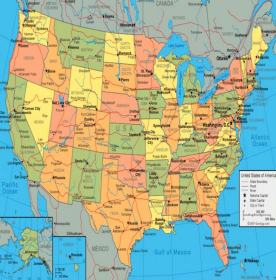
United States as a study destination
- The United States of America is one of the most powerful nations in the world in terms of economy, military, health and education.
- One of the biggest reasons students choose to study in the US is the country’s reputation for renowned higher education programs.
- Quality of Life: US ranks highest in housing and above average in income and wealth, health status, employment, etc…
- Safety and Security: The United States has developed a particularly strict, homeland
security.

Work Rights
- Can work on campus 20 hrs./week during
study time - Can work full time (i.e., 40 hrs./week)
during holidays
Entry Requirements
- Undergraduate Requirements
- Mandatory Requirements
Academic Percentage (10th & 12th) –
55% and above English Proficiency –
(Any one of the below).
- IELTS (minimum 6.0+)
- TOEFL (minimum 70+)
- PTE (minimum 53+)
- DET (minimum 100+)
- Scholastic Aptitude Test (SAT): Minimum score of 1150+.
- American College Testing(ACT): Minimum score of 25+.

Graduate Requirements
- IELTS (minimum 6.5+)
- TOEFL (minimum 78+)
- PTE (minimum 58+)
- DET (minimum 115+)
- Graduate Record Examination (GRE):
Minimum score of 290 to
300+ - Graduate Management Admission Test
(GMAT):
Minimum score of 550+
Qualification Rrquirements
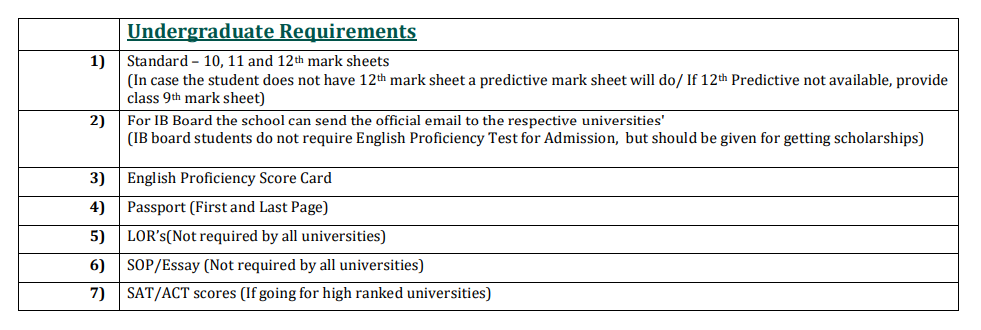
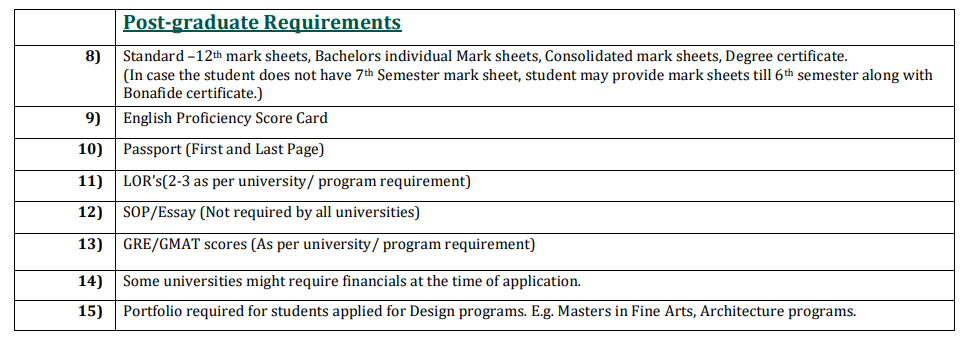
Duration of intakes in the USA

Financial Costs and Estimates
- PRIVATE HIGHER EDUCATIONAL INSTITUTIONS ANNUAL COST AROUND $30,000-$41,411 AND $11,171-$26,809 IN PUBLIC AND STATE COLLEGES.
- PUBLIC TWO-YEAR INSTITUTIONS: $10,000 TO $25,000
- ON- CAMPUS ROOM AND BOARD- $9,080 TO $13,120(DEPENDS ON INSTITUTION)
- OFF- CAMPUS RENT - $9,600 TO $30,504
- FOOD - $200 RO 660
- ELECTRICITY- $115 TO $168
- PHONE AND INTERNET - $15 TO $100
- TRANSPORTATION - $367 TO $561
- ENTERTAINMENT- $200
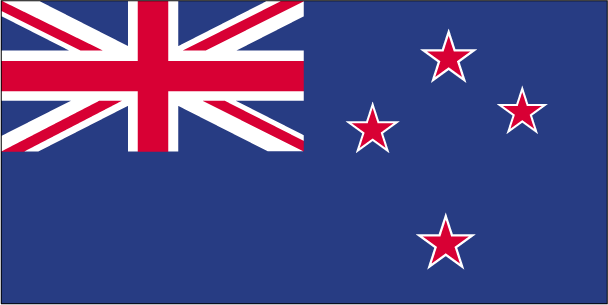
NEW ZEALAND
Why Study in New Zealand
- All the New Zealand Universities are ranked in the Top 500 as per the QS world ranking 2024.
- New Zealand is the second-most peaceful country worldwide.
- Official languages of New Zealand are English and Māori.
- Students can work 20 hours/week part time during classes and 40 hours/week during holidays. The min. wage rate is NZD 21.20 per hour.
- Post study work visa of up to 36 months.
- Popular Programs offered in the NEW ZEALAND MAP fields of – Business, Management, Tourism and Hospitality, Civil and Construction, Engineering, Finance, Supply Chain & Logistics, Health Science and Nursing.
Intakes and Deadlines
- There are generally two
Intakes in New Zealand:
February and July. - However, ITPs and Private
Institutes have multiple Intakes
for different courses. - Hence, practically there is an
intake almost every month in
some or the other institution
resulting in recruitment
throughout the year. - There is no deadline as such in
New Zealand, but it is
recommended to make
applications at least 6 months
prior to the start date to avoid
last moment hassles.
Entry Requirements


English Proficiency Requirements
- All the New Zealand Universities are ranked in the Top 500 as per the QS world ranking 2024.
- New Zealand is the second-most peaceful country worldwide.
- Official languages of New Zealand are English and Māori.
- Students can work 20 hours/week part time during classes and 40 hours/week during holidays. The min. wage rate is NZD 21.20 per hour.
- Post study work visa of up to 36 months.
- Popular Programs offered in the NEW ZEALAND MAP fields of – Business, Management, Tourism and Hospitality, Civil and Construction, Engineering, Finance, Supply Chain & Logistics, Health Science and Nursing.
Average range of fees per annum
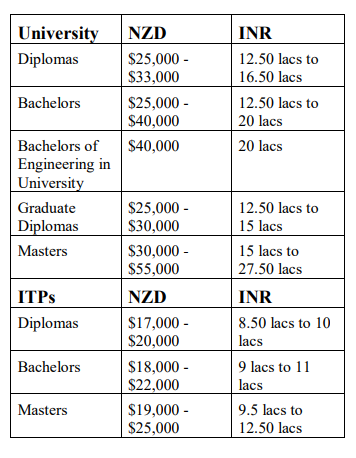
New Zealand Map
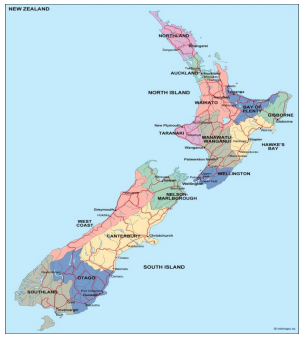
Popular Scholarships in New Zealand
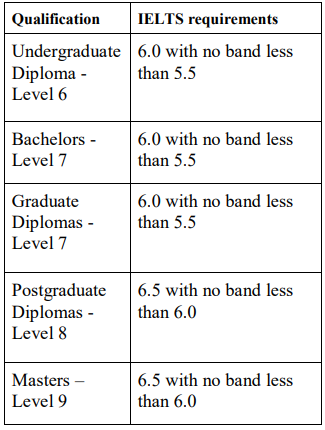
- New Zealand Commonwealth Scholarships Scholarship Amount: Full tuition fee and living expenses allowance.
- New Zealand Excellence Awards (NZEA): NZD 5,000 towards the first-year tuition fee
- Wellington International Excellence Scholarship: NZD 20,000 over three years paid towards
tuition fees. - Victoria Tongarewa Scholarship: NZD 5,000 or 10,000.
- University of Waikato Tauranga Bursary: NZ$10,000 only applicable for Tauranga campus.
- University of Waikato International Excellence Scholarship: Up to NZ$10,000 towards tuition
fees
Documents for Student Visa
- Completed application forms and supplementary information form.
- Original passport.
- Visa application fee (Online- 430 NZD).
- Covering letter & SOP.
- Financial documents.
- Affidavit of support from sponsor.
- Evidence of English language ability - IELTS/TOEFL/PTE score card.
- E-Medicals acknowledgement of medical test from empanelled doctor which should not be more than 3 months old.
- Original police clearance certificate (must be less than 6 months old at the time of visa filing).
Flow Chart For Application & Visa Process
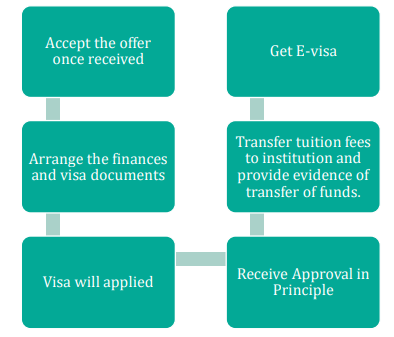

GERMANY

About Germany
• Germany consists of 16 States the capital and largest city is Berlin.
• Berlin is startup Capital of Europe.
• German is the official and predominant spoken language in Germany.
• Euro is the official currency of Germany.
• Universities in Germany are Technical University, Universities of Applied Sciences, Colleges of Art, Film and Music
Why Study in Germany
- Low cost of education.
- Most of the Universities or colleges are state
owned and Government funded. - Quality of Education
Merit is the only criteria for admission.
Education in Germany is one of the oldest and best in the world.
Good Job Prospects.
German Education guarantees.
Practical knowledge in addition to solid theoretical foundation.
Germany is home to many of the Fortune 500 companies like Volkswagen, Audi AG, BMW, Bentley Motors Limited, Skoda Auto, Siemens etc.
Non-EU students are allowed to stay up to 1.5 years after the completion of the study to search for a job.
International students are allowed to work for 120 full working days or 240 half working days in a year.
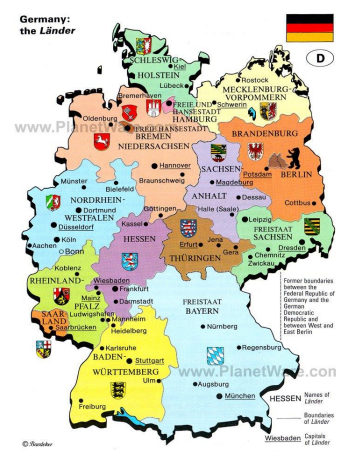
Duration & Tuition Fees
- The Master’s course is of 1-2 years and the Bachelor’s course is for 3 years.
- Master’s Fees – EUR 9000 – EUR15, 000 approx.
- Fees – € 10,000 – € 15,000 approx. for Bachelor’s.
- The fees is excluding living and accommodation costs.
Intakes & Deadlines
- Winter – September / October
- Summer – March / April
- Winter – Starts from 15th December to 31st March
- Summer – Starts from 15th August to 15th January
- Academic percentage – Above 60% is required.
- Minimum IELTS score – Overall 6.5 with no band less than 6 OR Minimum TOEFL score – 87.
- German Language: A2 Proficiency or at least A1.
Entry requirements for Bachelor’s
- 12 years of education is required for entry in a Bachelors program in Germany. Some universities needs 13 years of education OR Successfully completing a Foundation year at a university in Germany to compensate for the 13th year of education.
- Academic percentage – Minimum 60% & above in 12th.
- IELTS – Overall 6.5 with no band less than 6.
- German Language – B2 Level Proficiency
Documents required for Application to Institutions
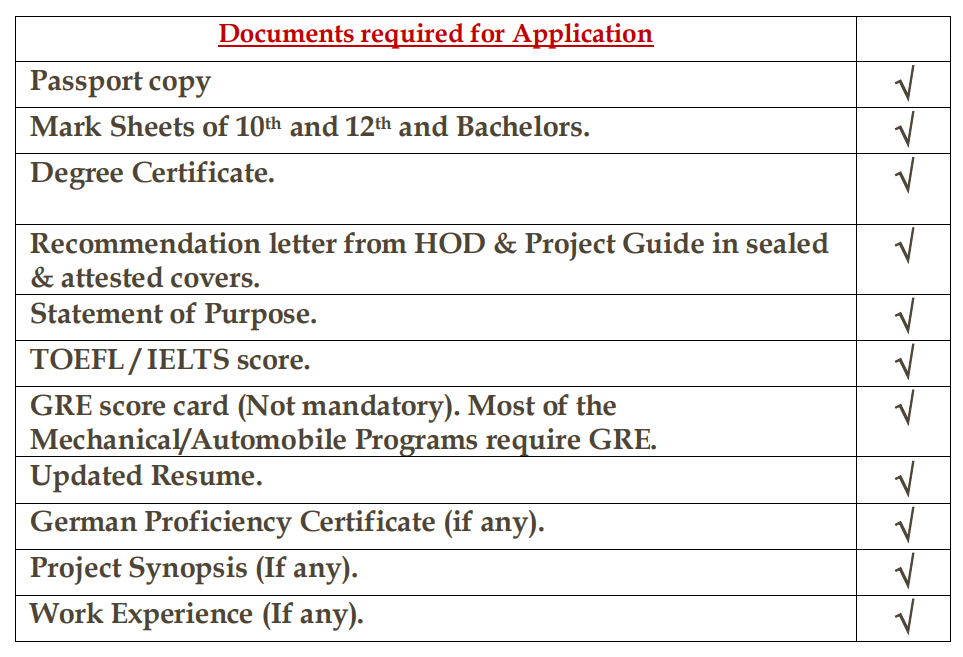
Germany Student Visa Flowchart
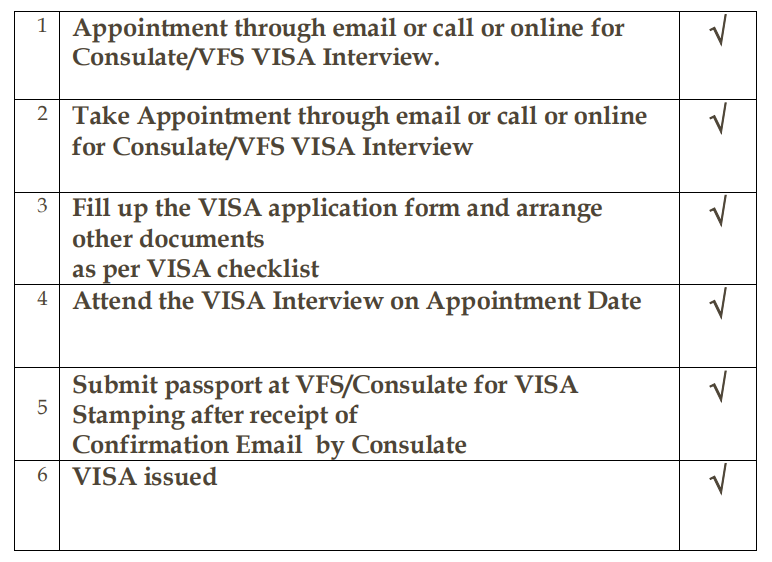
Documents required for German Student Visa

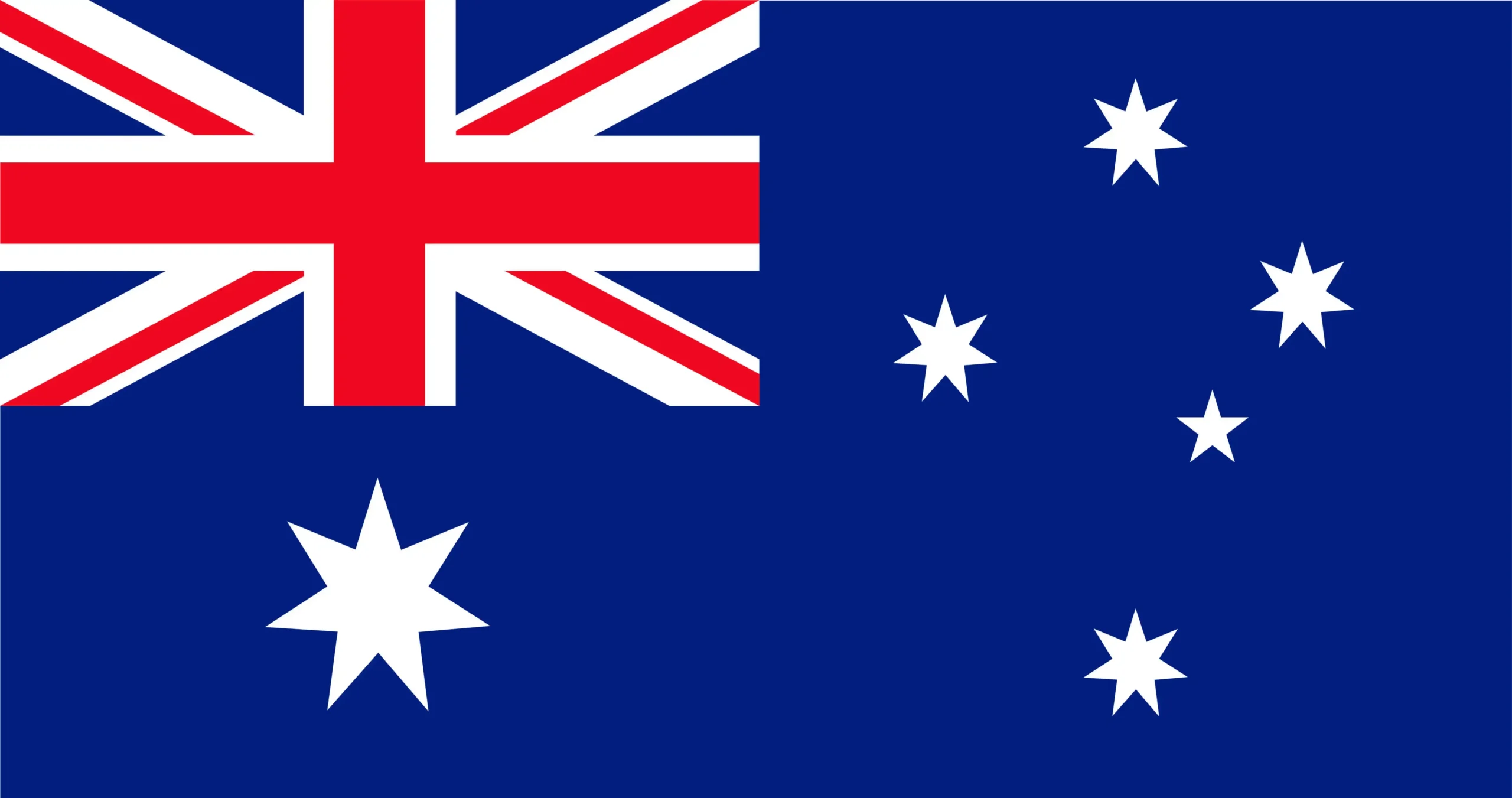
AUSTRALIA
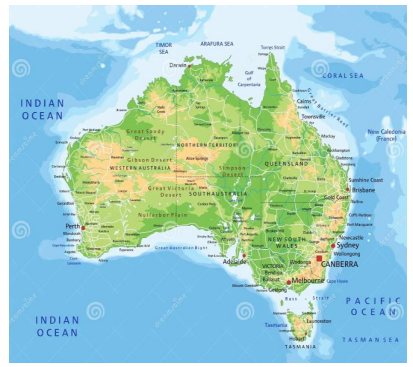
Universities in Australia
- There are a total of 43 Universities in Australia.
- Public – 38 Universities .
- Private – 3 Universities
Intakes available with Australian Universities
- February and July .
- Offered by Universities and Private Colleges .
- Courses offered: All popular areas .
- October/November
- Offered by Private Colleges and some of the major universities (e.g. Deakin University and Griffith University).
- Courses offered: Business, Information Technology and Engineering.
English Language Pathways (ELICOS)
- English Language Pathways are also called as ELICOS, EAP, ELP, etc.
- Offered to students falling short of English language requirement.
- Students have to study English ‘before’ commencing their main program
- Duration of ELICOS is restricted to 10 weeks.
- Tuition Fee of ELICOS: AUD 300 to AUD 400 per week .
Why Australia
- International Rankings of Australian Universities.
- Part time job opportunities for international students.
- Post-Study Work Visa up to 5 years.
- Opportunity for Permanent Residence.
- IELTS, TOEFL and PTE scores are accepted by all universities.
- Availability of pathway programs for international students.
- Lower entry requirements of universities with relatively higher international rankings.
- No Visa interviews.
- Quick visa outcomes.
- GST is paid over and above commissions.
Time schedule for Australia processing
For February intake
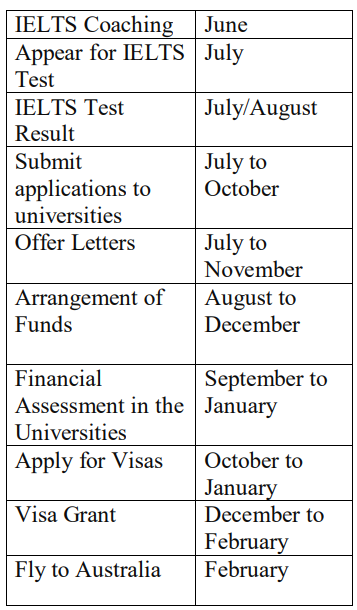
For July intake
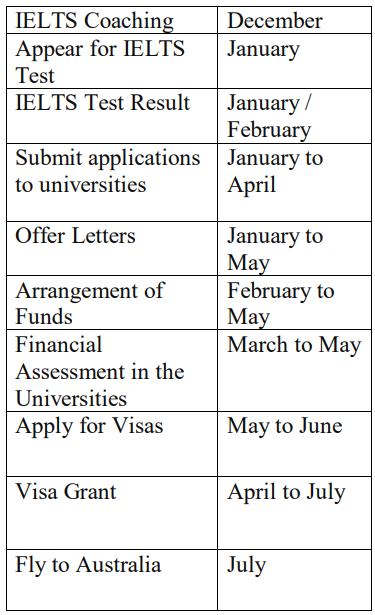
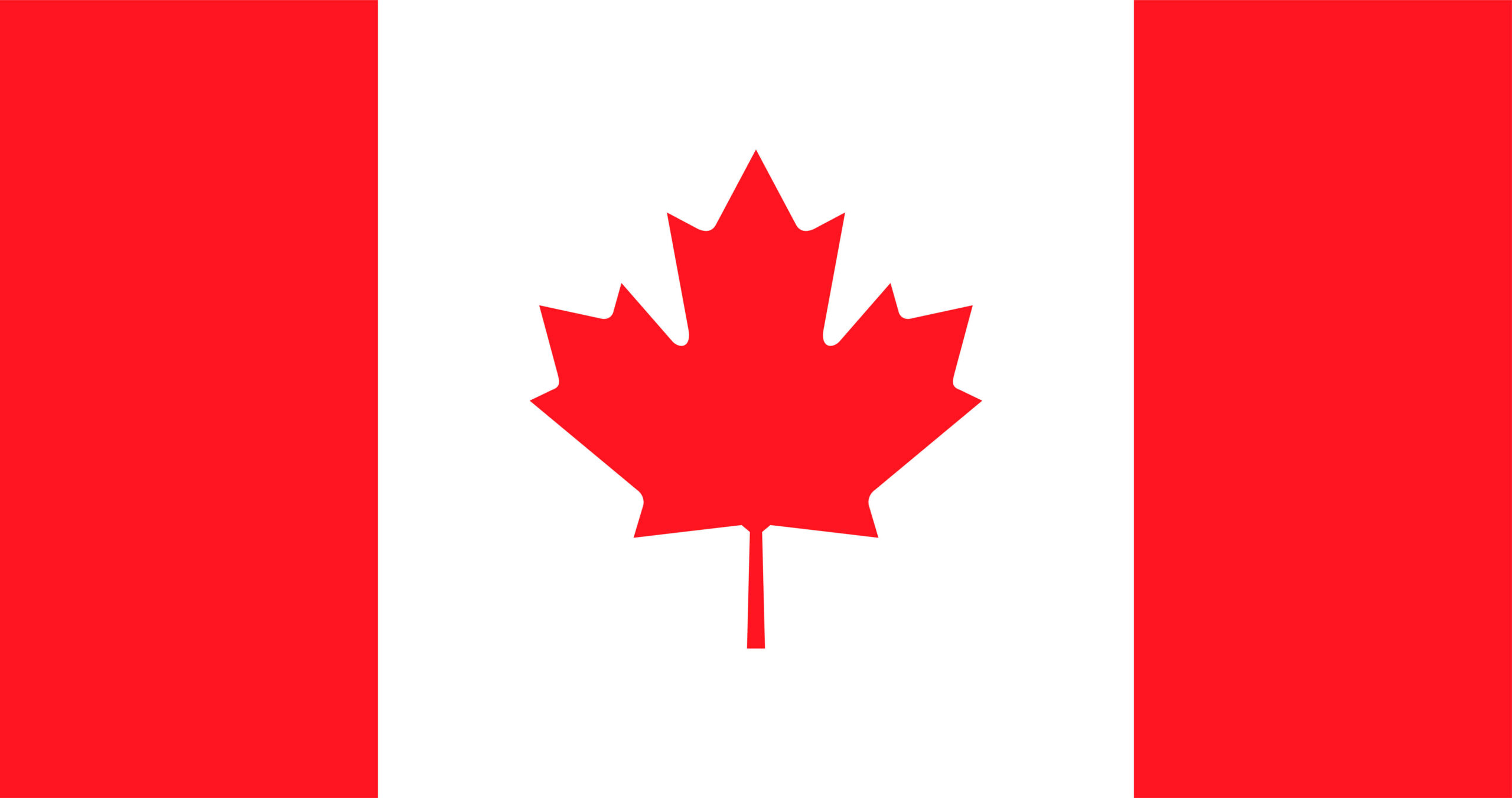
CANADA
WHY STUDY IN CANADA
- Qualifications valued around the world.
- Affordable education.
- Multicultural society.
- Healthy and safe communities.
- Possibility of paid internships while studying.
- Post study work visa and good job opportunities after completion of studies.
- Possibility of permanent residency.
ABOUT CANADA
- Canada is the second largest country in the world.
- Area of 99 lakh square kilometers with a population of around 36 million.
- A world leader in Aerospace, Pharmaceuticals, Telecommunication and Biotechnology
- Education in Canada is generally funded and managed by the Provincial Governments of Canada
- There are 98 Universities in Canada
CANADA MAP

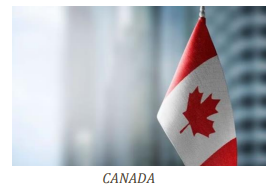
WORK PERMIT FOR STUDENTS
- Students are eligible to work part time on or off campus from day one. 20 hours per week during the academic session and full-time.
- Co-op & Internship Programs: Co-ops are for a semester or more and are mostly paid. Internships are for lesser time period i.e. 15 days to 30 days and may or may not be paid
INTAKES
- The main Intakes are September, January and May.
- There are limited intakes in July and October as well.
ACADEMIC & ENGLISH LANGUAGE REQUIREMENTS
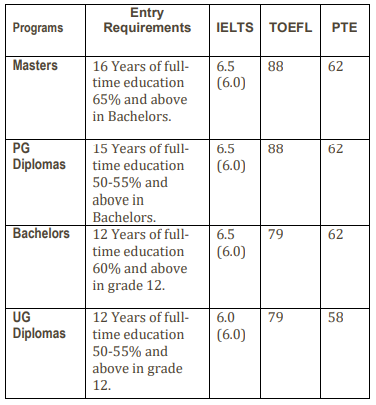
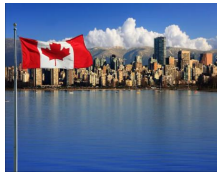
SDS – STUDENT DIRECT STREAM
- Admission to a full-time program at a University.
- An Academic IELTS (Overall 6.0) OR TOEFL (Overall 83) OR PTE ( Overall 60) taken within past two years.
- Purchase of a special Guaranteed Investment Certificate (GIC) of CAD$ 10,000.
- Proof of payment of the tuition fee.
- Upfront medical examination at least one week.
- All visa applications must be filed online electronically
PROCESS FLOW FOR CANADA STUDY VISA
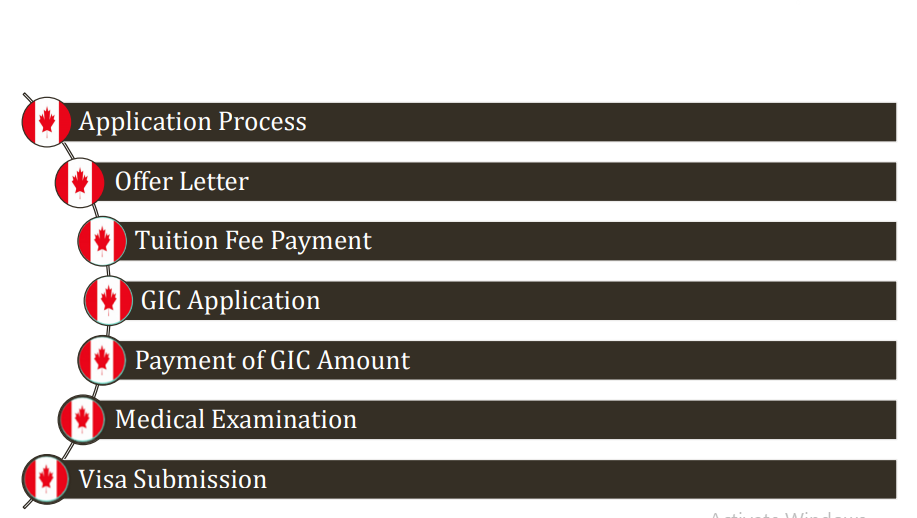

FRANCE
ABOUT FRANCE
- Comprises of 18 administrative regions with Paris as the capital.
- World's seventh largest economy.
- Ranked as one of the top study and tourist destinations in the World.
- French is the official and Predominant spoken language.
- Euro (€) is the official currency
- Internship opportunities In Multinational Companies.
STUDY DESTINATION FRANCE
- Post Study Work Visa
- Subsidized Accommodation by Government
- No IELTS/TOEFL
- Part time Jobs: Student can work up to 20 hours per week.
- Visa
- Free French Language Courses.
- Low Transportation Expenses.

- Summer - January/February
- Winter - September/October
- Summer - Up to 15th November
- Winter - Up to 15th July

Application Requirements
- Provide updated mobile number, email id and Skype ID of the student as the same will be required for interview by institution.
- Intimate the student that he/she will be interviewed by the institution representative and prepare the student to face it to reduce the chances of rejection.
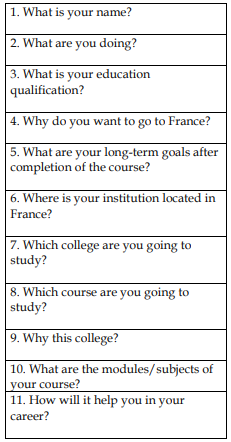

Duration & Tuition Fees
- Bachelor’s course – 3 or 4 Years.
- Master’s course – 1 year or 2 Years.
- Bachelor’s course – Approx. €9,000 to €12,000 per year (₹7 Lakhs to ₹10 Lakhs approx.).
- Master’s course – Approx. €9,000 to €15,000 per year (₹7 Lakhs to ₹12 Lakhs approx.).
FRANCE VISA PROCESS

FRANCE VISA PROCEDURE
VISA APPLICATION FORM
Appointment at VFS France
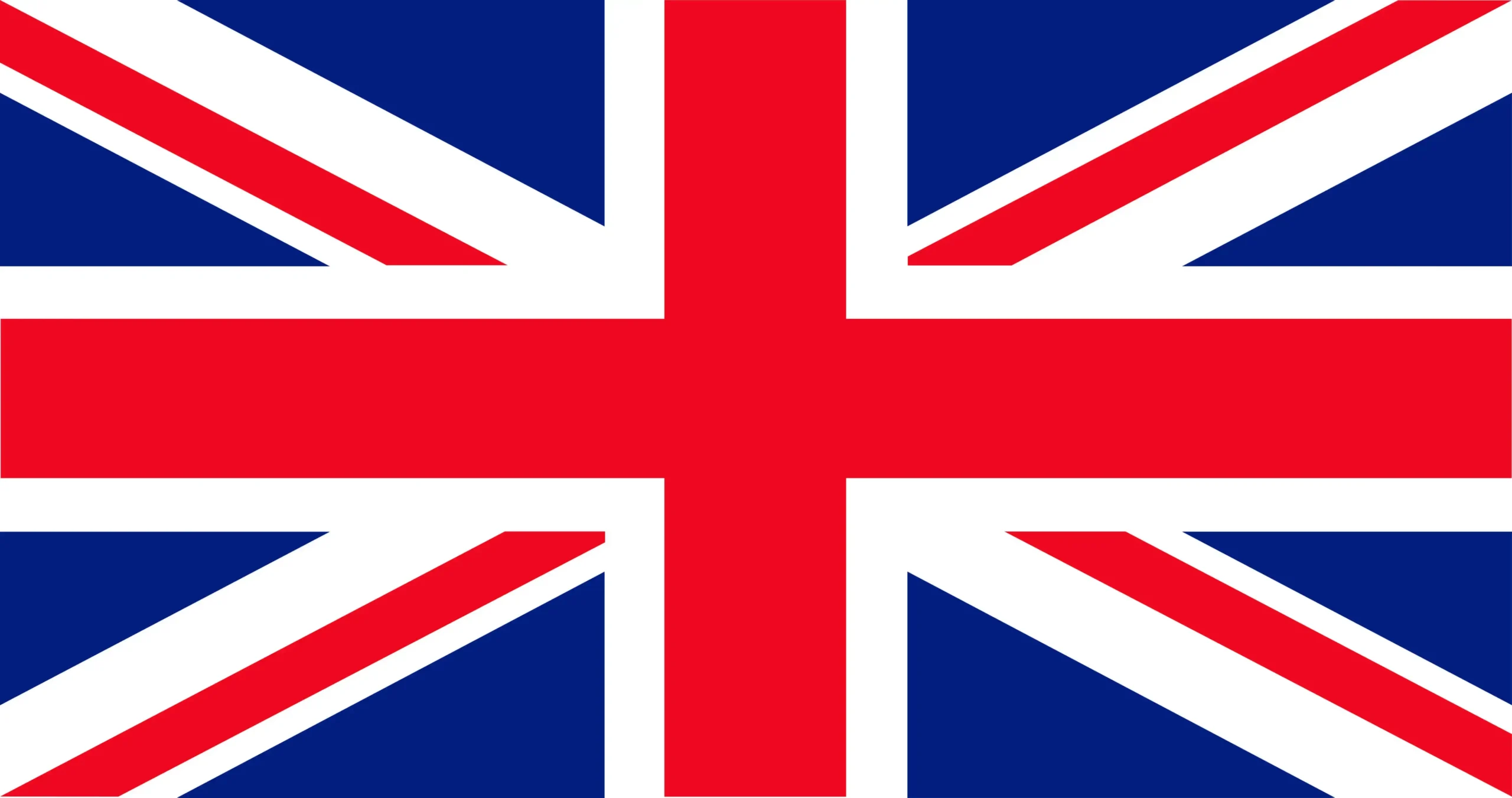
UK
Why Study In UK?
- World-Class education and academic facilities.
- Institutions consistently ranked amongst the best in the world.
- Numerous options of specializations to study.
- Admission possible without IELTS.
- Affordable and value for money as course duration are short.
- Scholarships and Bursaries available.
- Master's courses with paid placements or internships.
ENGLISH LANGUAGE REQUIREMENTS
Types of English tests accepted
Which English language test is accepted in UK? For entry to University programmes you would be required to take the Academic IELTS test. If you want to take a pre – sessional English course or a Foundation course, you must take your IELTS test at an approved UK Visas and Immigration (UKVI) test centre.
IELTS waiver is available in many of the universities if the student has secured More than 65% – 70% marks in 12th Standard English.
Pre-Sessional English Language program is also offered for students who do not meet the IELTS requirements of a particular course at a University.
UK Map

- September/October Fall intake
- January/February Spring Intake
- April/ May/ June/ July – Mid Intake
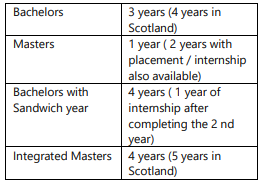


Entry Criteria for Bachelor’s
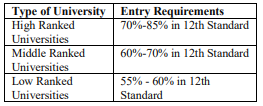
- For Engineering degrees, a score of 60% - 85% is required in Mathematics and Physics in 12th Standard depending on the university.
- For Business degrees a score of 55% - 85% is required in Mathematics depending on the University and other relevant subjects in 12th standard with few exceptions where the Mathematics score in 10th Standard is considered.
- Similarly, for other degrees minimum subject specific scores may be required in 12th Standard.
- IELTS requirement ranges from 6.0 / 6.5 with no band less than 5.5 depending upon the course and the University.
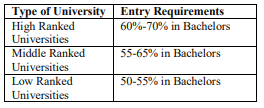
- IELTS requirement ranges from 6.0 / 6.5 with no band less than 5.5 depending upon the course and the University.
- Some UK Universities also accepts MOI – Medium of Instruction from graduating University to waive off the IELTS. MOI is not accepted to waive off IELTS for Bachelors.
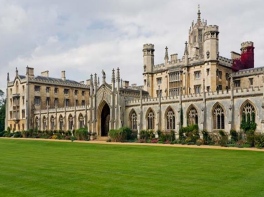
- IELTS Coaching (February)
- Give IELTS Exam (Start of March)
- IELTS Results (End of March)
- Applications (Jan to April)
- Prepare & Apply for VISA (July, August)
- CAS Request (April Onwards)
- Offer Letters ( Feb to June)
- Fly to UK (September)
- IELTS Coaching ( May, June)
- Give IELTS Exam (Start of July)
- IELTS Results( End of July)
- Applications(July to October)
- Prepare & Apply for VISA(November, December)
- CAS Request(October Onwards)
- Offer Letters( August to November)
- Fly to UK (January)
Entry Criteria for Bachelor’s
- A Foundation course is a one-year preparation course for international students who need additional English language and academic preparation for entry into the first year of a Bachelor’s degree at a UK university
- A Foundation degree is a two-year combined academic and vocational qualification, equivalent to two years of a Bachelor's degree and is a stand-alone degree.
- International Year 1 (IY1 Diploma): IY1 is a oneyear program for students who are not eligible for direct entry to a Bachelor’s program and it leads to 2nd year of a Bachelor's degree.
- HNC: An HNC (Higher National Certificate) is a one-year course, equivalent to the first year of a bachelor's degree.
- HND: An HND (Higher National Diploma) is a twoyear course, equivalent to the first two years of a bachelor’s degree. This qualification can be used to gain entry into universities in the final year of a Bachelor’s degree.
- A Pre-Masters program is for international students who need to improve and develop their academics, research and seminar skills ahead of a Master's degree. This course varies in length from ten weeks to twelve weeks. It offers a route to a postgraduate degree in several disciplines and is suitable for students who:
- Do not meet the academic requirements for admission into a postgraduate course.
- Want to change the discipline from undergraduate degree to postgraduate degree.
